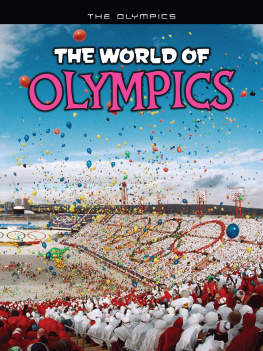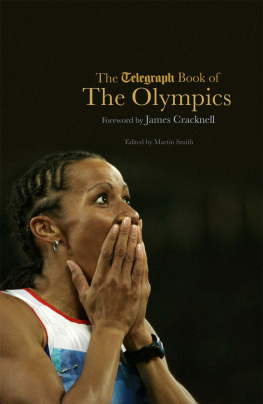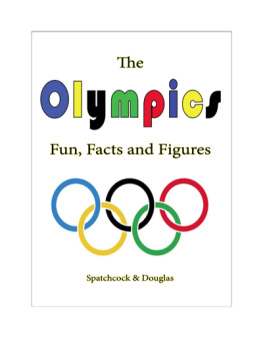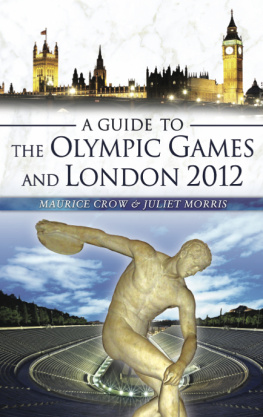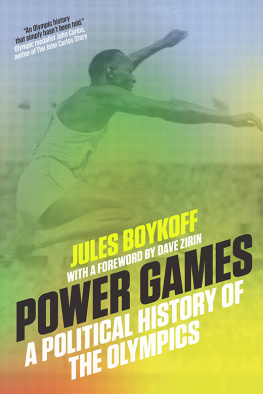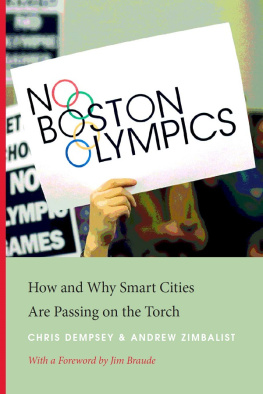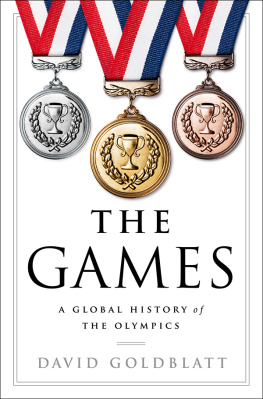THE BROOKINGS INSTITUTION
1775 Massachusetts Avenue, N.W., Washington, D.C. 20036
www.brookings.edu
All rights reserved. No part of this publication may be reproduced or transmitted in any form or by any means without permission in writing from the Brookings Institution Press.
The Brookings Institution is a private nonprofit organization devoted to research, education, and publication on important issues of domestic and foreign policy. Its principal purpose is to bring the highest quality independent research and analysis to bear on current and emerging policy problems. Interpretations or conclusions in Brookings publications should be understood to be solely those of the authors.
Library of Congress Cataloging-in-Publication data Zimbalist, Andrew S.
Circus maximus : the economic gamble behind hosting the Olympics and the World Cup / Andrew Zimbalist.
pages cm
Includes bibliographical references and index.
ISBN 978-0-8157-2651-7 (hardcover : alk. paper) 1. Hosting of sporting eventsEconomic aspects. 2. OlympicsEconomic aspects. 3. SoccerEconomic aspects. I. Title.
GV721.Z56 2015
9 8 7 6 5 4 3 2 1
Printed on acid-free paper Typeset in Sabon and Gotham Narrow Composition by Cynthia Stock
Silver Spring, Maryland
To the memory of Ellie Abend (19242014), my loving mother-in-law and intrepid copy editor
Contents
Preface
When I received a call from Gerry Schoenfeld, chairman of the Shubert Organization, Broadway's oldest show producer, in 2003, I had been working in the field of sports economics for over a decade. Some of my work had explored the economic impact of sports teams on cities. Independent scholarly investigation was virtually unanimous: stadiums and teams could not be expected to have a positive impact on a city's employment or output. Part of this conclusion rested on the fact that most of the money fans spent at an arena or stadium was leisure budget money that they would not spend at other entertainment venues within the city. Hence, spectator sport spending substituted for spending elsewhere in the local economy.
It seemed plausible that mega-sporting events (such as the Olympics, World Cup, or Super Bowl) would have a more positive impact. After all, a large share of the attendees came from out of the area or out of the country. They must be bringing new money, rather than recycled money, to town. Moreover, cities and countries were clamoring to host these events.
As it turns out, the substitution effect operates in a different way with mega-events, but it is still operative. Other factors as well conspire to render mega-events a dubious instrument to promote the local economyexcept in special cases, with certain preconditions, and with very effective planning and implementation.
I wasn't fully aware of the lay of the mega-event land when Gerry Schoenfeld called in 2003. I did know that it was two years after the events of September 11, 2001, and that New York City had an urge to rebuild. Following the leadership of Dan Doctoroff, the city's deputy mayor for economic development under Mayor Michael Bloomberg, and with the support of the city's major construction companies and unions, a committee had already formed to bid for the right to host the 2012 Summer Olympic Games.
Schoenfeld and the Shubert Organization didn't like the Olympic plan. In part, they thought it was a waste of the city's thin financial resources and not the most rational way to use its scarce land, but in larger part they were concerned with the impact that hosting the games would have on Broadway. The keystone of the city's plan was a new Olympic stadium, to be built on land bounded by 31st and 33rd Streets and 10th and 11th Avenues. This six-square-block area houses the open train yards for the Long Island Railroad. Building an Olympic stadium on top of these yards would have first required putting a concrete slab over the yards. This six-square-block concrete slab alone would have cost an estimated $400 million (the construction of the stadium itself would have been an additional half billion dollars or more). The stadium would have had heavy use for the seventeen days of the games, and then, after some costly refitting renovations, it would have served as the home field for the NFL's New York Jets. The Jets would have played ten home games there each year (including two exhibition games). There may also have been a few concerts and perhaps a college football game, but it is not likely that the stadium would have been in use more than fifteen days a year. The slab and the stadium would have been paid for by the taxpayers.
I may not have fully understood mega-event economics at the time, but it was obvious to me that once a concrete slab covered six square blocks on the west side of mid-Manhattan overlooking the Hudson River, it would be one of the most valuable pieces of real estate in the country, if not the world. Using it for fewer than 5 percent of the days of the year made no sense whatsoever.
And it made even less sense to the Shubert Organization. The stadium would have been a few blocks away from Broadway's theaters. The Jets play most of their home games on Sunday afternoonsthat's major traffic jamming the streets for Sunday matinees. A few evening contests wouldn't help either. If public funds were to be employed to spiff up mid-Manhattan entertainment options, the Shubert Organization wanted to ask, how about some money to help maintain and renovate Manhattan's most venerable entertainment, the theaters of Broadway?
Schoenfeld wanted me to do some economic analysis, some writing, and some public speaking. I gave myself a crash course in Olympic economics and decided that Dan Doctoroff was pushing an unrealistic plan. Fortunately for New York City, the International Olympic Committee (IOC) agreed. In 2005 the IOC announced its choice of London to host the 2012 Summer Games.


